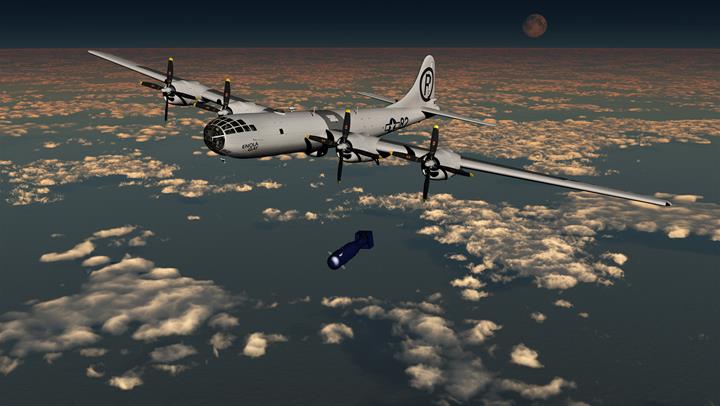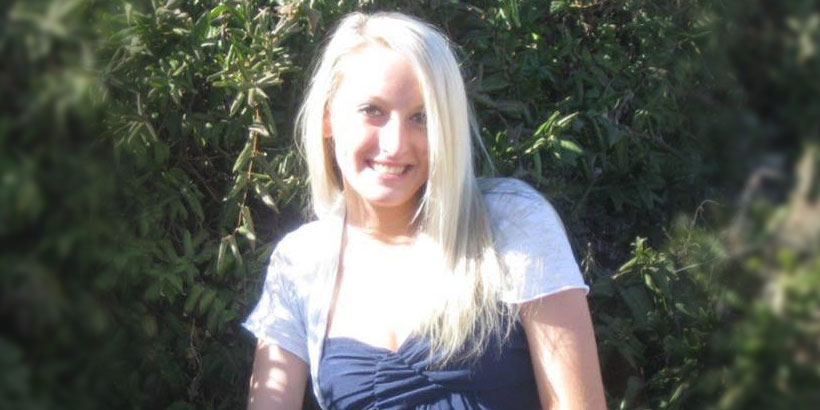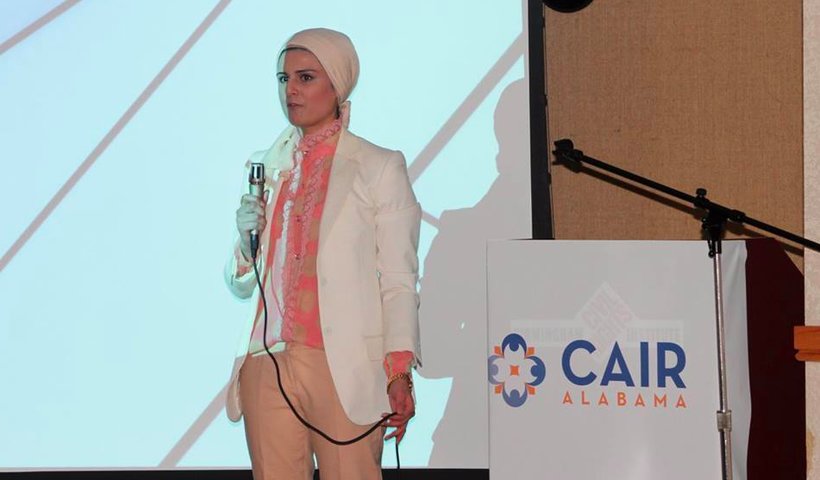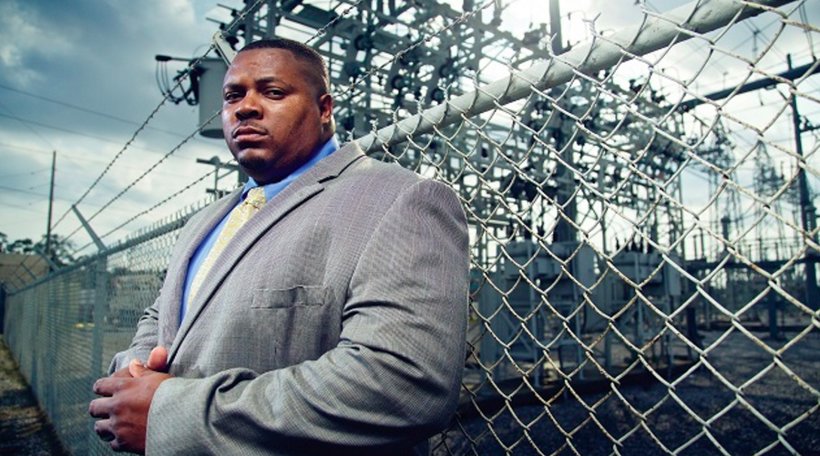
By: Carla Davis
Terrence Bullock’s body still carries reminders of 10 years ago when he nearly lost his life in the Iraqi desert.
On that night in 2005, Bullock, a lance corporal in the Fourth Amphibious Assault Battalion of the U.S. Marine Reserves, was conducting a sweep of an area held by insurgents near the Syrian border. His unit provided security for the infantry to flush out insurgents.
“It was bad. It was the most intense combat that we had ever been in,” said Bullock, Corporate Security investigator at Alabama Power‘s Mobile Division.
“We had been in skirmishes and firefights before. But these guys were obviously better trained and better equipped than any of the insurgents we had seen until that point,” he said. “It was going to be a difficult task, but the Marines are always up for a good fight.”
Bullock and the other Americans endured a day of intense close-quarters combat that left two Marines dead and several injured. For two days, they manned a checkpoint awaiting reinforcements. They were then tasked with assaulting a high-insurgent activity target.
Their convoy of M1A1 Abrams tanks and light armored reconnaissance and assault amphibious vehicles (AAV) was crossing a small ravine when an improvised explosive device hit the 300-gallon fuel tank of the AAV Bullock was driving, sending the 32-ton vehicle airborne and killing six of the 14 Marines onboard.
Three of Bullock’s teeth were driven into his nasal cavity. His lower lip was cut and his upper jaw fractured in several places. Shrapnel was imbedded in his right arm, shoulder and back (some of that metal remains today). Bullock managed to pull himself from the burning wreckage. He was conscious but couldn’t open his eyes.
“I thought I was blind,” Bullock said. “The medic had to force my eyes open. They had been slammed shut by the trauma from the blast even though I was wearing my safety glasses.”
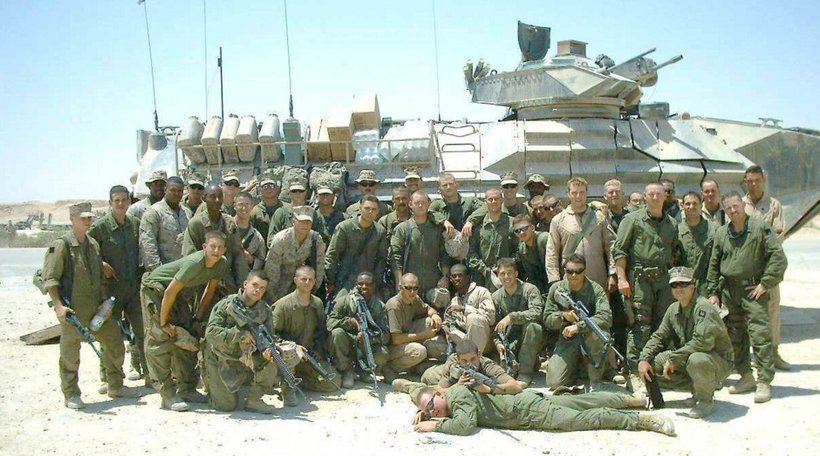
Bullock was airlifted to a nearby base where medics stitched his lip and extracted his broken teeth. He was flown to an Air Force hospital at Balad Air Base in Iraq, where he underwent six surgeries to remove shrapnel and repair his jaw.
Bullock said his bulletproof vest, ballistic helmet and other military gear saved his life. After a month in the hospital, Bullock rejoined his unit until his tour of duty ended, and he was awarded the Purple Heart.
Before the fateful night, Bullock had been stationed in Iraq for two months, called in to replace Marines who fought in the Battle of Fallujah.
“Those guys that had been there went through some of the most intense, sustained close-quarter fighting since Vietnam,” Bullock said. “We were fresh and new and, of course, the bad guys knew we were new, so we were involved in some heavy combat operations from the beginning.”
Bullock’s unit transported and provided security for troops. The infantry’s mission: close the main thoroughfares and go door to door looking for enemy combatants and weapons. When Bullock was not assigned to security, he often volunteered to assist the infantry in canvassing operations.
Bullock and the other Marines were always on guard. The insurgents often fired mortars and rockets at them as they worked at their home base, he said. Living conditions were unusual as they slept at and operated a hydroelectric dam, which supplied electricity to most of Iraq.
“We operated in the Al Anbar Province, which was considered the Wild West” with a large concentration of enemy combatants, he said.
Bullock was attached to the 3rd Battalion 25th Reserve Unit from Ohio as a part of Regimental Combat Team 1. More than 50 Marines were killed and more than 100 wounded in battle during their seven-month tour.
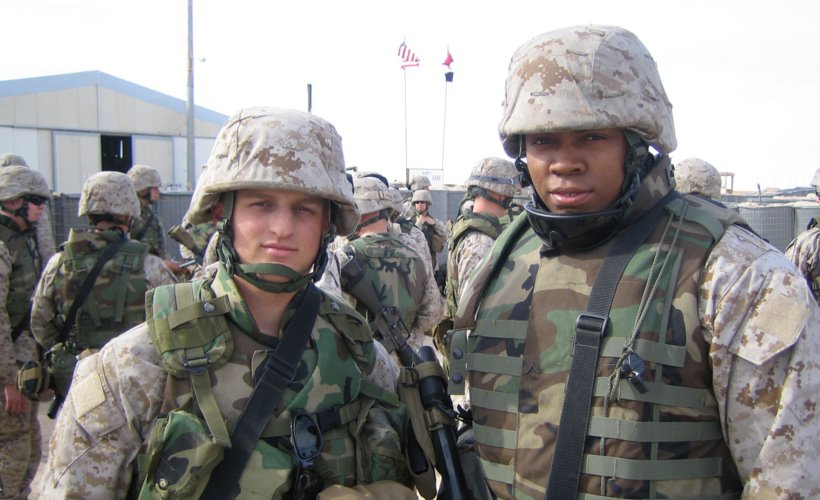
Bullock joined the Marine Corps Reserve in 2001.
“I was going to the University of Southern Mississippi, but I had been flirting around with the idea of joining the military,” said Bullock. “After Sept. 11, I felt obligated. I said, ‘If I’m going to join, it’s going to be now, and I’m going to join the most elite branch of the military, and that’s the Marines.’ I wanted a job where I would join the fight and engage the enemy.”
Bullock completed his college coursework for the semester early and headed for boot camp at Paris Island, S.C., in November 2001, receiving honor graduate accolades. He transferred to Camp Pendleton in San Diego, where he trained as an AAV operator. He learned basic infantry tactics and close-quarters combat maneuvers – skills he put to use in Iraq.
Bullock returned home in 2002 to finish college. He was with the Hattiesburg Police Department for nearly 11 years, reaching the rank of captain before joining Alabama Power.
After his Operation Iraqi Freedom deployment, Bullock remained in the Reserves until 2007.
Bullock said two things pulled him through the tough times in Iraq: lots of prayer and an unwavering faith. He read daily Psalms 91:1 – “He who dwells in the shelter of the Most High will rest in the shadow of the Almighty.”
“My Mom told me to look that verse up before I left, and it stuck with me while in Iraq, as a police officer, and still sticks with me today,” Bullock said.
“Marines are trained to fight for God first, country next and then the Corps. But at the end of the day, you fight for the love of your fellow Marines, you fight for their safety, for their lives and for them to return to their family,” Bullock said.






